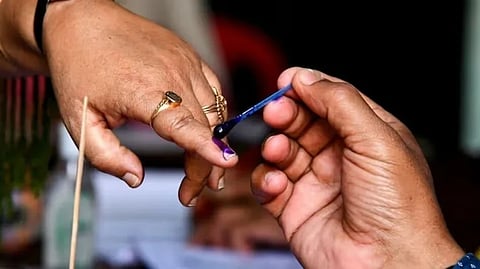
- Home
- Live Blog
- Breaking News
- Top Headlines
- Cities
- NE News
- Sentinel Media
- Sports
- Education
- Jobs

The elections to the Bodoland Territorial Council (BTC) are an opportunity for the electors of the Bodoland Territorial Region (BTR) to take stock of the promises made and progress achieved over the past five years before they firm up their opinion about electing a new set of rulers. For the political parties, the elections to the autonomous council are an opportunity to test the mood of the people across a significant geographical area of the state ahead of the 2026 assembly polls. All three ruling coalition partners – Bharatiya Janata Party, United People’s Party Liberal and Asom Gana Parishad (AGP) – have decided to go alone. The Bodoland People’s Front (BPF)—the principal opposition party in BTC, which ruled the council for 17 years—is putting all efforts into returning to power. The All Bodo Students’ Union, the apex student body of the Bodos, made efforts to bring UPPL and BPF together, but BPF Chief Hagrama Mahilary threw cold water on their initiative by shutting the door of negotiation and announcing that his party will go alone in BTC polls. The BPF, however, has weakened with several top leaders deserting it and joining the ruling UPPL and the BJP. The BJP hopes to capitalise on the split in the Bodo votes – the core support base of the two Bodo political parties – and also increase its electoral influence among all communities, including the Bodos. The aggressive campaign by the BJP, led by Chief Minister Himanta Biswa Sarma from the front, about how with triple engine governments at the Centre, in the state and in the BTC, his party could put developments in the tribal autonomous council on a faster lane, has set the tone for an intense triangular poll battle. The Congress has also fielded its candidates, but the party is struggling to regain a foothold due to weak organisational strength. For Congress leader Gaurav Gogoi, this will be the first major election under this leadership as the Assam Pradesh Congress Committee chief, and the poll outcome will have bearings on his capabilities in electoral politics that may influence electors outside BTR ahead of the assembly polls, which are about seven months away. A fractured mandate may facilitate continuation of the BJP’s alliance with the two Bodo political parties as allies in the state politics. Realignment of the pre-poll alliance is not completely ruled out if either of the Bodo political parties is left out in the power play after the results are announced and fails to get a share of the power pie and moves closer towards the Congress or other opposition parties. With more than 66 per cent of the BTR population belonging to non-Scheduled Tribe communities in the tribal council ruled by the Bodos, who account for 90 per cent of the ST population, the issues of equitable distribution of resources, aspirational demands of different communities, decentralisation of autonomy to the grassroots and utilisation of funds provided to the BTC will be considered by the electors to decide their opinion. The issue of transparency and allegations of corruption at the ad hoc Village Council Development Committee (VCDC) level raised by Chief Minister Sarma while spearheading the campaign is likely to become a major poll issue. The BJP has promised to hold elections to the VCDC to make the grassroots bodies inclusive and end ad hocism. The UPPL has found itself cornered over the VCDC issue, but Chief Executive Member of BTC and UPPL Chief Pramod Boro is making the best efforts to blunt the BJP campaign by insisting that the elections to the VCDC can be held only after the 125th amendment to the Constitution is passed by the parliament to strengthen the autonomous councils under the Sixth Schedule. The political accusations and counter-accusations notwithstanding, empowering the VCDC by holding elections is critical to ensure transparency in fund utilisation, distribution of resources, and government benefits to the people belonging to all communities without any discrimination. Like other Sixth Scheduled councils, BTC does not have panchayats, and therefore, VCDCs are crucial to allow people in BTR to participate in the governance process. The parliament passing the 125th amendment bill by the parliament is crucial to put the Autonomous District Councils, including BTC, under the Sixth Schedule at par with the Panchayati Raj Institution, as it provides for the establishment of the village and municipal councils in addition to district and regional councils. Strengthening of the Sixth Schedule councils is not possible without ensuring strict financial discipline and accountability in governance. The BTC polls have also brought opportunities for electors to reflect on the gaps so that hard-earned peace and the development process are sustainable and are not derailed by lack of accountability and transparency in governance. It is hoped that the new council to be elected will be inclusive for all in the true sense of the term.